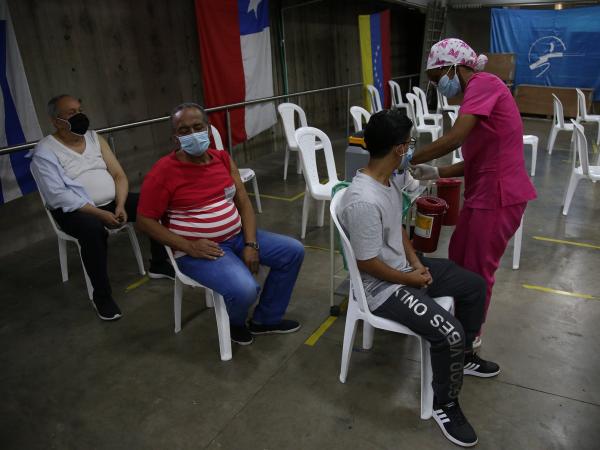The study ‘The cost-effectiveness of the covid-19 testing, tracking and isolation program in Colombia’, carried out by the Ministry of Health, with the accompaniment of the Johns Hopkins School of Public Health and the Javeriana University, allowed to conclude that the implementation of a contact tracing system by covid-19 allowed save lives and save costs to the health system.
(See: Changes in the requirement of a vaccination card: they will ask for a complete scheme).
According to Julián Fernández Niño, director of Epidemiology and Demography of the Ministry of Health and Social Protection, the research evaluated the various components of the Testing, Tracking, Selective and Sustainable Isolation (Prass) program and, among the main key findings of the study , it was identified that the program could prevent 84,730 deaths, which would translate into a savings of 2,123 million pesos for the possible years of productive life that could be lost due to these deaths.
(See: Genomma Lab and Oramed, in partnership for vaccine against covid).
Likewise, the cost-effectiveness of the comprehensive tracking strategy was estimated against a comparison scenario without any intervention over a one-year horizon. The analysis included both the perspective of the health system and another from the costs to society.
According to the Ministeri, or among the costs of the intervention program is the use of health services, PCR diagnostic tests, loss of productivity and the costs of the Government’s social program.
(See: Pfizer’s agreement to facilitate global access to the anticovid pill).
Compared to the scenario of not having performed any type of intervention, the tracking strategy achieves reduce mortality from covid-19 by 67% and, on the other hand, the program saves an average of $ 1,045 and $ 850 per case when viewed from a social and health system perspective.
“Detection of cases and early follow-up of people infected with COVID-19 are closely associated with better survival rates from the disease caused by the virus”Said Fernández Niño.
Among the follow-up schemes, they were simulated three scenarios: the first, the low-risk population without follow-up that could be reported with a call in case they needed it; the second, moderate-risk people had four follow-ups based on calls from a nursing professional for 5, 7, 10, and 14 days after confirmation of infection; and, in the third scenario, high-risk people who received an oximeter and a telephone follow-up with a doctor.
Thus, the study shows that an early case tracking and follow-up program in Colombia could save lives and improve health outcomes at the same time that it is cost-effective. And it provides a basic guide for the prioritization of case monitoring and follow-up programs, such as a health intervention against the covid-19 pandemic and any other outbreak that could be registered in the future in Colombia.
(See: The seven cities in the country that must advance in vaccination).
Full investigation can be reviewed by clicking here.
BRIEFCASE






